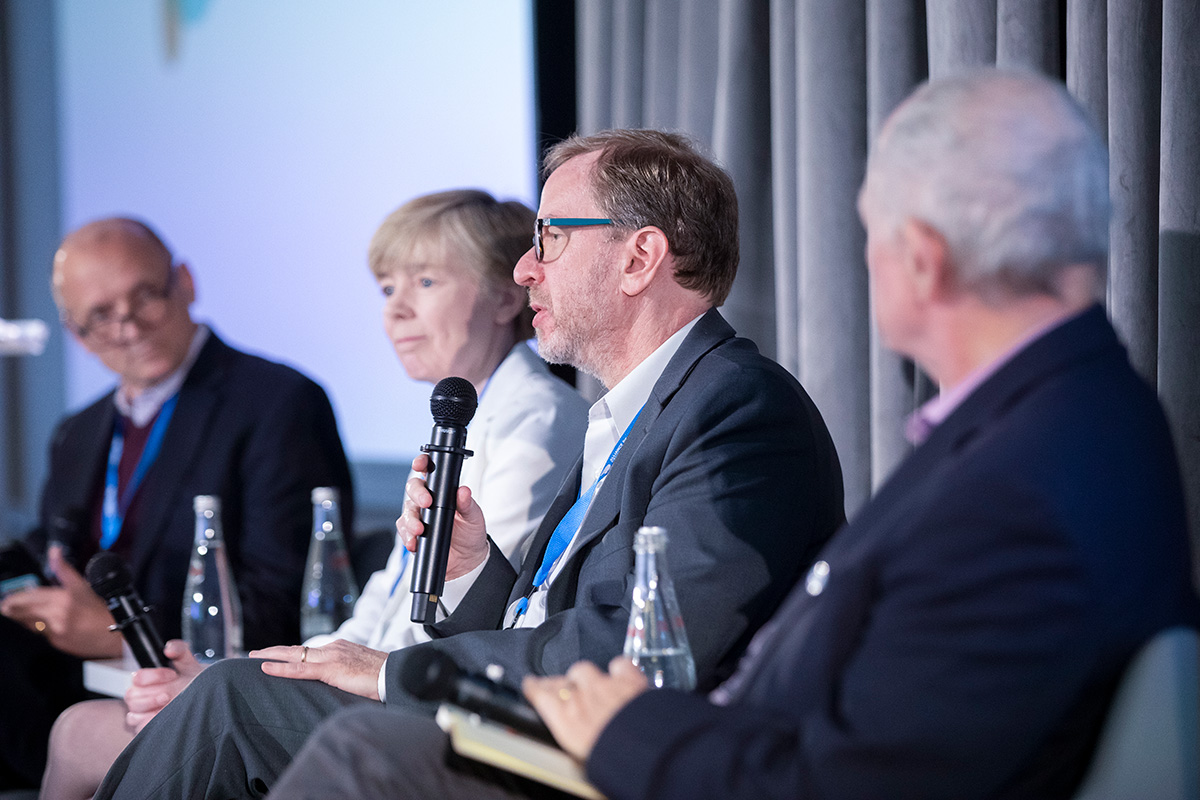
In 2011, ACGT Co-Founder Edward Netter passed away from pancreatic cancer, which takes the lives of nearly 52,000 people in the U.S. each year. Pancreatic cancer is an aggressive disease that is predicted to become the second leading cause of cancer-related death worldwide by 2030.
To honor Mr. Netter and amplify ACGT’s commitment to overcoming pancreatic cancer, a new ACGT Research Grant for $500,000 was unveiled in March at the ACGT Summit 2024 – the ACGT Edward Netter Memorial Investigator Award in Cell and Gene Therapy Research for Pancreatic Cancer.
According to ACGT Chief Program Officer Barbara Lavery, there exists an urgent need to advance novel immunotherapies. The challenges are not insurmountable, but they do require innovative and creative thinking. The ACGT Edward Netter Memorial Investigator Award in Cell and Gene Therapy Research for Pancreatic Cancer is designed to stimulate research and clinical progress in advancing cancer cell and gene therapies to bring new hope to pancreatic cancer patients. In the process, advances likely will also help overcome the challenges of other solid tumors.
Pancreatic cancer research scientists at ACGT Summit 2024 explained that pancreatic cancer is diagnosed in approximately 67,000 people in the U.S. each year, and the 5-year survival rate is just 13%. The standard treatment options of surgery, chemotherapy and radiation therapy may help patients whose disease is in early stages, but those with metastatic pancreatic cancer cannot have surgery and experience harsh side effects with no long-term anti-tumor responses from chemotherapy or radiation.
“It’s an extraordinarily complex disease and that’s an understatement,” said Eileen O’Reilly, MD (Memorial Sloan Kettering Cancer Center). “Most patients have metastatic disease already. We don’t have good early detection, and we don’t have a lot of early warnings for this disease. When this disease manifests, it’s also not just one problem.”
Dr. O’Reilly added that people with pancreatic cancer often experience co-morbidities – such as diabetes, weight loss and pain – which makes the cancer more difficult to treat. Ben Stanger, MD, PhD (University of Pennsylvania), explained how another challenge to using cell and gene therapy for pancreatic cancer is the density of the tumor, which prevents immune cells from entering. The environment around the tumor is also highly immuno-suppressive.
“In many ways, it’s a perfect storm of problems,” Dr. Stanger says. “It’s kind of like an army storming a castle. You must ask what the barriers are to getting in. Is there a moat? Are there walls?”
ACGT is accepting applications for The ACGT – Edward Netter Memorial Investigator Award in Cell and Gene Therapy for Pancreatic Cancer Research. Click the link to see the application timeline and more details.



